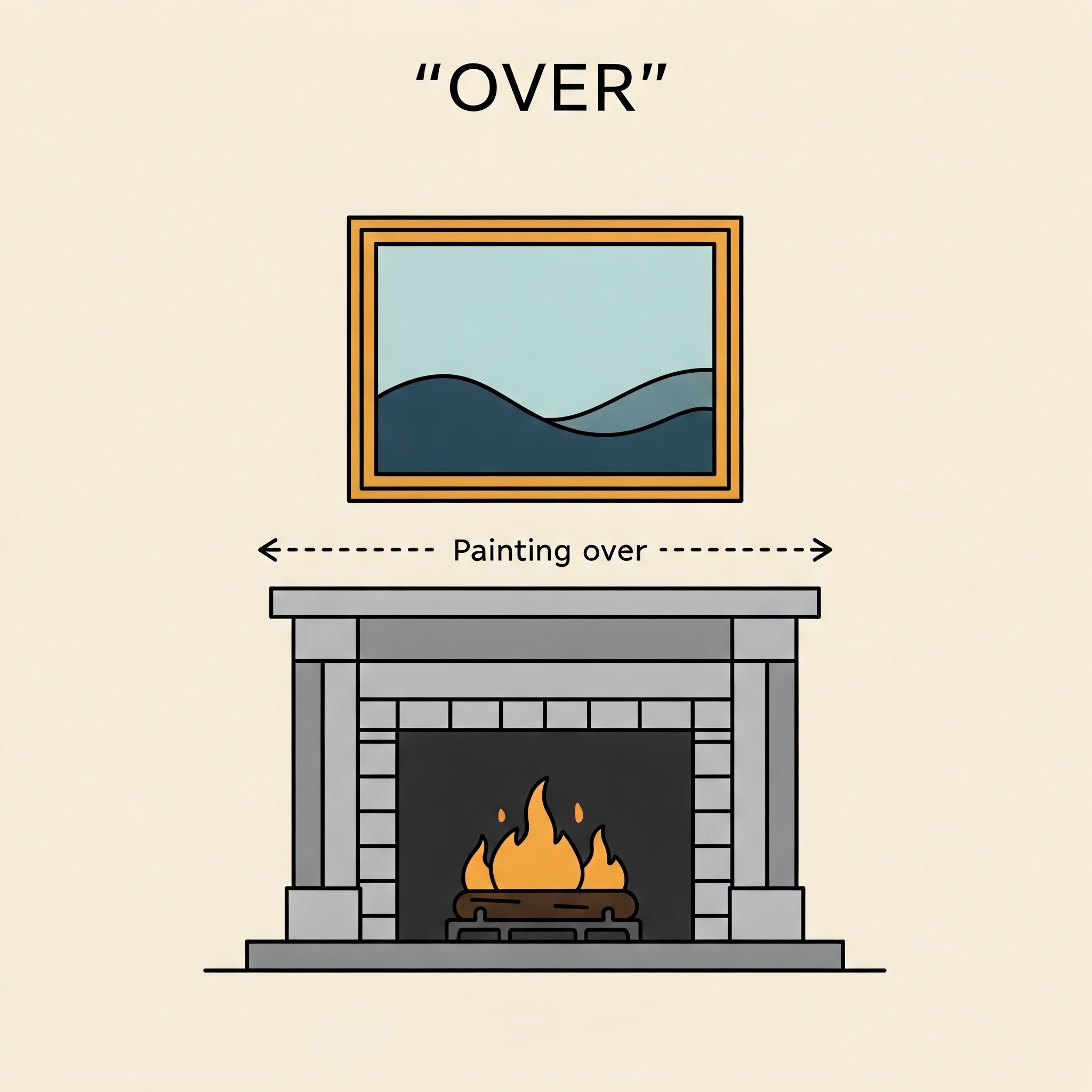Over
Definition
Over is a preposition, adverb, and adjective. As a preposition, it indicates a position above or across something. As an adverb, it signifies movement or extension from one side to another. As an adjective, it describes something finished or completed.
Parts of Speech
- Preposition
- Adverb
- Adjective
Pronunciation
American English
- IPA Pronunciation: /ˈoʊ.vɚ/
- Respelling: OH-vur
British English
- IPA Pronunciation: /ˈəʊ.və/
- Respelling: OH-vuh
Etymology
The word "over" originates from Old English "ofer," meaning "above" or "across." It is derived from Proto-Germanic "*uberi" and Proto-Indo-European "*uper," both of which mean "above" or "beyond."
Derivatives
- Overcome (verb)
- Overload (noun/verb)
- Overhead (adjective/noun)
- Overturn (verb)
- Overall (adjective/noun)
Synonyms
- Above
- Across
- Beyond
Antonyms
- Under
- Below
- Beneath
Usage
The term "over" is versatile and widely used in spatial, figurative, and temporal contexts. Examples include "The plane flew over the city" (preposition), "Turn the page over" (adverb), and "The project is over" (adjective).
Related Terms
- Above: Refers to a higher position.
- Beyond: Indicates something further than a specified point.
- Across: Signifies movement from one side to another.
Detailed Definitions
Preposition
- Indicating position above or higher than something: Describes being directly or indirectly above.
- Example: "The painting hangs over the fireplace."
- Across or beyond: Refers to movement or extension from one side to another.
- Example: "They traveled over the bridge."
Adverb
- From one side to another: Indicates a change in position or location.
- Example: "She rolled over in bed."
- Exceeding a certain amount or limit: Describes going beyond a point.
- Example: "The population has grown to over a million."
Adjective
- Finished or completed: Refers to something that has ended.
- Example: "The meeting is over."
over



🇨🇳 Mandarin
- 过 (guò)
- IPA Pronunciation: /kwo˥˩/
- Respelling in English: kwo
- 上 (shàng)
- IPA Pronunciation: /ʂɑŋ˥˩/
- Respelling in English: shahng
🇮🇳 Hindi
- ऊपर (ūpar)
- IPA Pronunciation: /uːpər/
- Respelling in English: oo-par
- से अधिक (se adhik)
- IPA Pronunciation: /se ədʱɪk/
- Respelling in English: se ad-hik
🇪🇸 Spanish
- sobre
- IPA Pronunciation: /ˈsobɾe/
- Respelling in English: so-breh
- más de
- IPA Pronunciation: /mas de/
- Respelling in English: mas deh
🇫🇷 French
- sur
- IPA Pronunciation: /syʁ/
- Respelling in English: suhr
- plus de
- IPA Pronunciation: /ply də/
- Respelling in English: pluh duh
🇸🇦 Modern Standard Arabic
- فوق (fawq)
- IPA Pronunciation: /fɑwq/
- Respelling in English: fawq
- أكثر من (akthar min)
- IPA Pronunciation: /akθar min/
- Respelling in English: ak-thar min
🇧🇩 Bengali
- উপর (upor)
- IPA Pronunciation: /upoɹ/
- Respelling in English: upor
- থেকে বেশি (theke beshi)
- IPA Pronunciation: /tʰeke beʃi/
- Respelling in English: theke beshi
🇷🇺 Russian
- над (nad)
- IPA Pronunciation: /nat/
- Respelling in English: nat
- более (bolee)
- IPA Pronunciation: /bɐˈlʲej/
- Respelling in English: bo-lyey
🇵🇹 Portuguese
- sobre
- IPA Pronunciation: /ˈsobɾɨ/
- Respelling in English: so-bre
- mais de
- IPA Pronunciation: /maiʃ dɨ/
- Respelling in English: maish di
🇮🇩 Indonesian
- di atas
- IPA Pronunciation: /di a.tas/
- Respelling in English: dee ah-tas
- lebih dari
- IPA Pronunciation: /lə.bih da.ri/
- Respelling in English: luh-beeh dah-ree
🇩🇪 German
- über
- IPA Pronunciation: /ˈyːbɐ/
- Respelling in English: ue-ber
- mehr als
- IPA Pronunciation: /meːɐ̯ als/
- Respelling in English: mehr ahlz
🇯🇵 Japanese
- 上 (ue)
- IPA Pronunciation: /ɯᵝe/
- Respelling in English: ue
- 超えて (koete)
- IPA Pronunciation: /ko.e.te/
- Respelling in English: ko-e-te
🇻🇳 Vietnamese
- trên
- IPA Pronunciation: /ʈə˧˥ən/
- Respelling in English: tren
- hơn
- IPA Pronunciation: /həːn˧˧/
- Respelling in English: hon
🇰🇷 Korean
- 위에 (wie)
- IPA Pronunciation: /wi.e/
- Respelling in English: wi-e
- 넘게 (neomge)
- IPA Pronunciation: /nʌm.ge/
- Respelling in English: neom-ge
🇹🇷 Turkish
- üzerinde
- IPA Pronunciation: /yˈzyɾind̪e/
- Respelling in English: u-zee-rin-de
- fazla
- IPA Pronunciation: /faz.la/
- Respelling in English: faz-la
🇵🇰 Urdu
- اوپر (upar)
- IPA Pronunciation: /oːpər/
- Respelling in English: o-par
- سے زیادہ (se zyada)
- IPA Pronunciation: /se zjɑːd̪aː/
- Respelling in English: se zya-da





